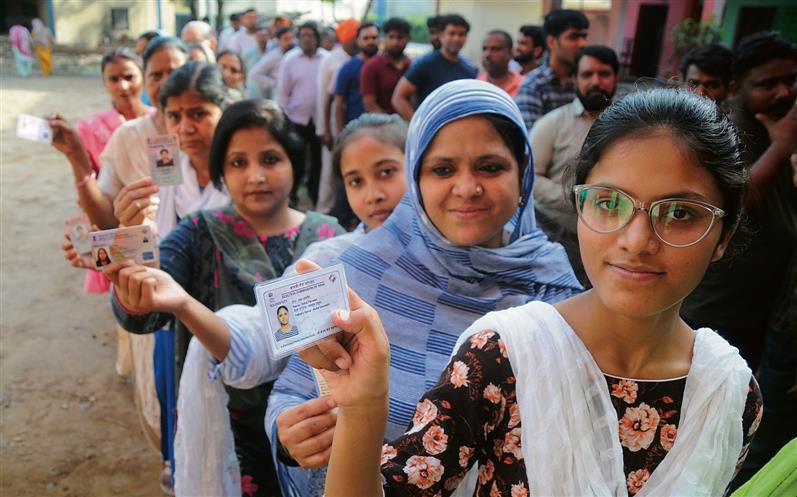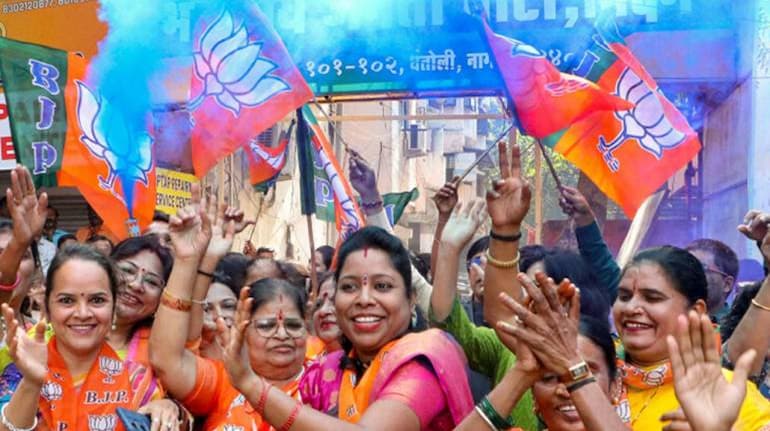A case for Proportional Representation
June 11, 2024 at 11:01 am 8 comments
With over 640 million voters exercising their democratic rights through 5.5 million Electronic Voting Machines (EVMs) spread over a million polling stations, the just concluded general elections in India was indeed a gigantic exercise that is both a pride for the nation and an envy of the opponent neighbours. And when 542 candidates emerged victorious to be the new Members of the Parliament through a grueling eight-week long campaign in blistering heat, what was on abundant display throughout this election process was the proverbial “Dance of Democracy” in all its facets.
This celebration of the will of the people is made possible by our forefathers who in their collective wisdom adopted the concept of universal adult suffrage fundamental to our democracy. They gave all Indians above the age of twenty-one (later lowered to the age of eighteen), the right to vote irrespective of their caste, religion, colour, language, social, economic or other distinctions that was truly revolutionary for the time. Thus, the most deprived of the Indian shares equal power with his most privileged countrymen in electing his representative which often manifest in the final verdict in its own unique ways. In this election, while the ruling dispensation was brought back to power, it was contained way short of a simple majority so as to be dependent on its allies to run the government. As they pressed the little button on the EVM, it seems that the substantial chunk of the poor, the youth and the marginalised had the concerns of livelihoods foremost in their minds and thus decided to sober the powers that be. Such is the sovereignty of the people of India that they hold the ultimate authority to reward, replace or reprimand governments through that instrument called the Vote, collectively exercised once every five years.
Yet, this power of the vote as it is practiced today has some serious lacune. In a constituency-based First Past The Post (FPTP) system, many a times the will of the people is inadequately reflected in the outcome of the election. There have often been instances where voters of a particular political party, though relatively smaller in number but concentrated in a tiny region, gather larger share of seats than the ones with much larger vote share but dispersed over a wider geography. Thus, in the state of Bihar, the Rashtriya Janata Dal (RJD) with over 22% of the vote share in the state won just four seats whereas the smaller Lok Janshakti (Ram Vilas) party won five seats with just 6.33% of the votes! And in some states, a small difference in vote share translates disproportionately to huge difference in the seats. In Odisha for instance, The Bharatiya Janata Party (BJP) with a vote share of about 45% won all but one of the twenty-one seats in the state whereas the Biju Janta Dal (BJD), though polled over 37% of the votes drew a blank! So also is the case of AIADMK in Tamil Nadu with 20% of the votes and no seats to its kitty.
This anomaly in correctly interpreting the choice of the people calls for progressive intervention and one instrument that’s available is the idea of Proportional Representation (PR) of political parties based on their vote share. Though a complete shift to the concept of PR may not be feasible nor desirable, a partial adoption of its tenets would be a step forward and the Delimitation Act to be implemented offers the right opportunity. The Delimitation Act that is to come into force based on the census conducted after the year 2026 is expected to increase the number of parliamentary seats in the country and these incremental seats could be considered for PR. The Law Commission has already made a similar recommendation for a Mixed Member Proportional Representation (MMPR) wherein the present ‘First Past The Post’ system is imaginatively aligned to PR for the additional seats. This also would be in line with the larger trend the world over for PR in parliaments and senates. There are today about a hundred countries that practice PR in one form or the other and the system seems to be inclusive and more genuinely represent the divergent nature and character of the population.
Politics and political systems, as any other branch of human endevour, are evolutionary in character and as such should be dynamic enough to reflect the shifting aspirations of the people. And timely reforms are the key to keep the system robust. India, for long, has been a votary for reforms in the Security Council of the United Nations and has justifiably sought a permanent seat to make the Security Council “legitimate, representative, responsive and effective” reflecting the geo-political realities of the times. It is thus only prudent that reforms be also carried out in the Indian electoral process to make it more representative and responsive.
From the time of Plato’s The Republic and the republican Janapadas of ancient India, the search for a more inclusive and representative form of governance has remained a constant pursuit for millenniums and it still continues to be a ‘work in progress’.
Yours
Narayanan
Entry filed under: Uncategorized. Tags: BJP, Indian Election, Voter.
8 Comments Add your own
Leave a comment
Trackback this post | Subscribe to the comments via RSS Feed



1. Anonymous | June 11, 2024 at 1:01 pm
Anonymous | June 11, 2024 at 1:01 pm
wonderful explanation based on valid political analysis
2. cindy knoke | June 15, 2024 at 11:23 am
cindy knoke | June 15, 2024 at 11:23 am
Yes! Thank you.
3. chapter18 | June 15, 2024 at 11:29 am
chapter18 | June 15, 2024 at 11:29 am
Thanks, Cindy!
4. Jane Fritz | June 18, 2024 at 12:19 am
Jane Fritz | June 18, 2024 at 12:19 am
First of all, congratulations to India for showing the world how democracy can work in your recent election. Secondly, you’ve given an excellent description of democracy at work and also the disadvantages of the First Past the Post system. We have the same thing in Canada; it must be a throwback to our British govt roots. Our current govt promised to change to proportional representation when they were first elected in 2015. Needless to say, they came to realize that with proportional representation they’d have less of a majority (or no democracy), so proclaimed after a “study” that it was too difficult. Wrong!
5. chapter18 | June 18, 2024 at 6:28 am
chapter18 | June 18, 2024 at 6:28 am
First Past the Post system, though easy to operationalize, is a very rudimentary way of gauging people’s will. Unfortunately, any shift to proportional representation would be fiercely resisted for the stated reason of stability!
6. beetleypete | June 19, 2024 at 5:58 pm
beetleypete | June 19, 2024 at 5:58 pm
We had extensive reporting of the elections in India, ‘the biggest democracy in the world’. There is also a great deal of talk about proportional representation here, as the same two parties have dominated the political scene for well over 100 years. But because of that, it rarely gets a full debate in parliament, and is unlikely to happen in my remaining lifetime. Best wishes, Pete.
7. chapter18 | June 19, 2024 at 6:49 pm
chapter18 | June 19, 2024 at 6:49 pm
The change could happen sooner than expected…Miracles do happen!
8. Priti | June 25, 2024 at 8:41 pm
Priti | June 25, 2024 at 8:41 pm
For Indian voting is a like celebration we like to vote maybe it right or wrong well shared